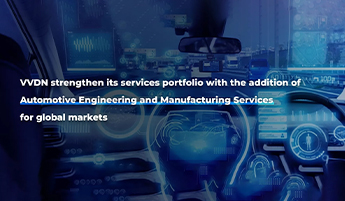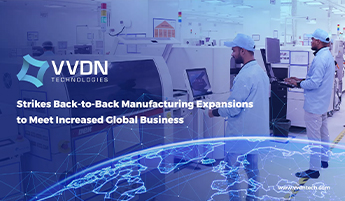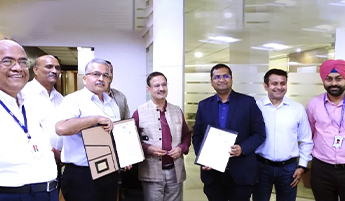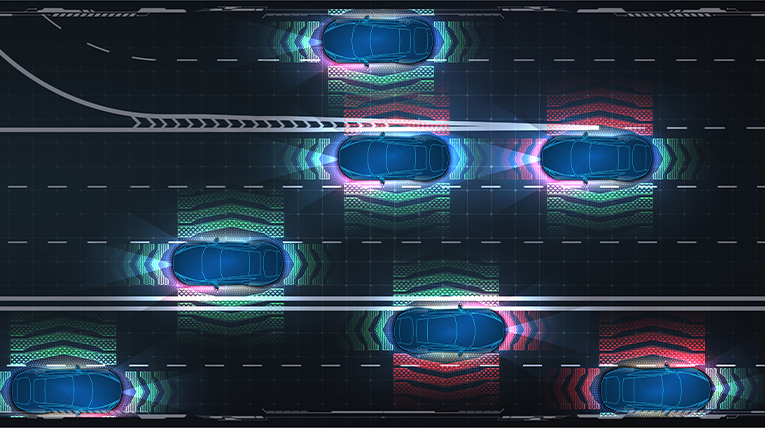The advent of autonomous vehicles (AVs) has marked a significant shift in the auto industry. The traditional car manufacturers have been pushed to reconsider their business strategies and adopt new technologies to keep up with the changing trends. The emergence of AVs has not only impacted the auto industry but also the transportation sector, cities, and economies.
According to Mordor Intelligence, The autonomous car market was valued at USD 22.22 billion in 2021, and it is expected to reach USD 75.95 billion by 2027 while registering a CAGR of 22.75% during the forecast period 2022-2027. The increasing demand for fuel-efficient, safe, and convenient driving options is driving the growth of the AV market.
Key Technologies Used in Autonomous Vehicles:
Autonomous vehicles (AVs) are transforming the automotive industry by leveraging a wide range of technologies to enable safe and efficient driving without human intervention. These technologies include sensors, software, and systems that work together to create a complete picture of the vehicle’s surroundings and make decisions in real-time.
- Cameras: AVs use multiple cameras to capture images and videos of the environment, which are processed by AI algorithms to interpret the data. Cameras provide high-resolution images and a wider field of view than LiDAR and RADAR sensors, making them ideal for detecting road signs, traffic signals, and lane markings.
- GPS: Global Positioning System (GPS) is a satellite-based navigation system that provides accurate location information. AVs use GPS to track their position and plan their routes, which is crucial for autonomous driving.
- Artificial Intelligence: AI algorithms are the backbone of AV technology. They process the data collected by sensors and cameras, make decisions in real-time, and control the vehicle’s movements. AI algorithms enable AVs to detect and respond to changing road conditions, avoid obstacles, and navigate complex traffic scenarios.
- LiDAR: LiDAR is a remote sensing technology that uses lasers to measure distances and generate 3D maps of the environment. AVs use LiDAR sensors to detect and locate objects in their surroundings, including other vehicles, pedestrians, and obstacles.
- RADAR: RADAR is a technology that uses radio waves to detect and locate objects. AVs use RADAR sensors to supplement LiDAR and provide additional information about the surroundings, especially in adverse weather conditions.
The Emergence of AVs has Disrupted the Auto Industry in Several Ways, Including:
- New Business Models: The rise of AVs has opened new opportunities for car manufacturers to enter the ride-hailing and ride-sharing business, where they can offer their own fleet of self-driving cars.
- Shift in Manufacturing and Engineering: The production of AVs requires a new set of skills and expertise, which has led to a shift in the manufacturing and Engineering process. The traditional auto manufacturers are now investing in new technologies and hiring software engineers to develop the software required for Avs.
- Safety and Efficiency: AVs have the potential to significantly reduce the number of accidents caused by human error. Moreover, they can improve fuel efficiency and reduce emissions, which can have a positive impact on the environment.
- Mobility for All: AVs can improve accessibility for people who are unable to drive, such as the elderly and people with disabilities. They can also provide affordable and efficient transportation options in rural areas.
VVDN’s Key Services for the Auto Industry Include:
VVDN, a leading provider of engineering and manufacturing services for the automotive industry, is at the forefront of AV development. The company offers end-to-end solutions for AV development, including hardware design, software development, and testing services.
- Sensor Design and Integration: VVDN offers sensor design and integration services for LiDAR, RADAR, cameras, and other sensors used in AVs. VVDN’s sensor expertise enables car manufacturers to optimize the performance and reliability of their AV systems.
- Software Development: VVDN has a team of experienced software engineers who develop the software required for AVs, including AI algorithms, sensor fusion, and control systems. VVDN’s software development services enable car manufacturers to customize their AV systems to meet their specific needs and requirements.
- Testing and Validation: VVDN offers testing and validation services for AVs to ensure that they meet the required safety and performance standards. VVDN’s testing and validation services enable car manufacturers to identify and fix issues before their AVs hit the road.
- Manufacturing and Production: VVDN offers manufacturing and production services for AVs, including PCB assembly, prototyping, and mass production. VVDN’s manufacturing and production services enable car manufacturers to scale up their AV production and bring their products to market faster.
Autonomous vehicles change the face of the auto industry If you are also looking to develop autonomous system, understand how we can help and what real-life industry knowledge we can bring to the table. Contact VVDN today at info@vvdntech.com.
























